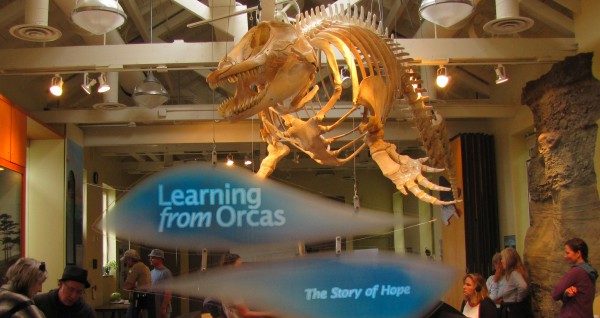
The Port Townsend Marine Science Center (PTMSC) protects endangered species, advocates for marine life, provides education through school programs and events, connects the community to the local environment—and they continually inspire conservation of the Salish Sea with an attitude of hope. What fuels them? Two key strengths: volunteers and partnerships.
Janine Boire, Executive Director, talks about how these two strengths work in tandem to fulfill their mission. She named two successful partnerships that have been powered by volunteers in their Citizen Science Program.
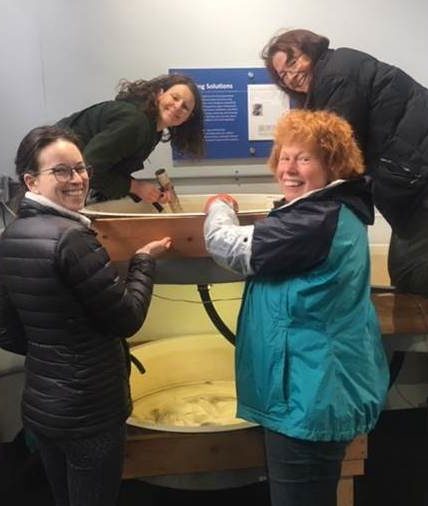
The first is the Pinto Abalone Recovery project, led by the Puget Sound Restoration Fund. The pinto abalone is the only abalone species found in Washington waters and has suffered an extreme population decline in recent decades. Through collaborative effort, a conservation program has been working to prevent extinction. Hatcheries release healthy, genetically diverse juveniles in the wild. Volunteers from the PTMSC supported this effort by providing “halfway houses” for juvenile abalone, cared for by “abalone moms.” These passionate volunteers care and feed the baby abalone, enabling the project to be scaled up and giving this native species a better chance at survival.
The second partnership focuses on the Sea Star Wasting Syndrome, a disease affecting marine life on the west coast from Mexico to Canada. Volunteers from the PTMSC have been contributing for years to studies run by Cornell University and UC Santa Cruz on this mysterious disease. The numbers they report, along with data from other contributors, have helped to identify the pathogen causing the disease and the possibility that warming waters are a contributing factor.
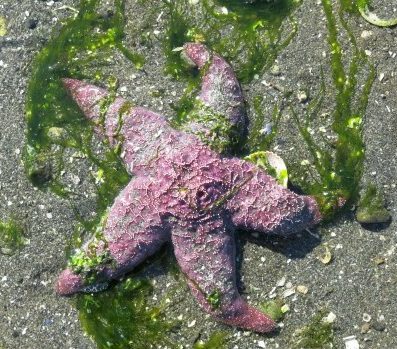
Boire recognizes how valuable it is to have an amazing set of volunteers who want to step up to do this important work. She also notes that managing a large volunteer program isn’t simple, crediting their Citizen Science Coordinator, Betsy Carlson, as a warm communicator with a scientist’s mind. Carlson goes the extra mile to communicate to volunteers, making sure that the community feels included with the work of the organization. That means celebrating with their volunteers when they found the pathogen causing the sea star disease and making sure they know that all the cold nights they spent counting sea stars made a meaningful difference. Boire simply states, they are “part of the pieces of discovery.” They are careful to close the loop with inclusive communication to their volunteers.
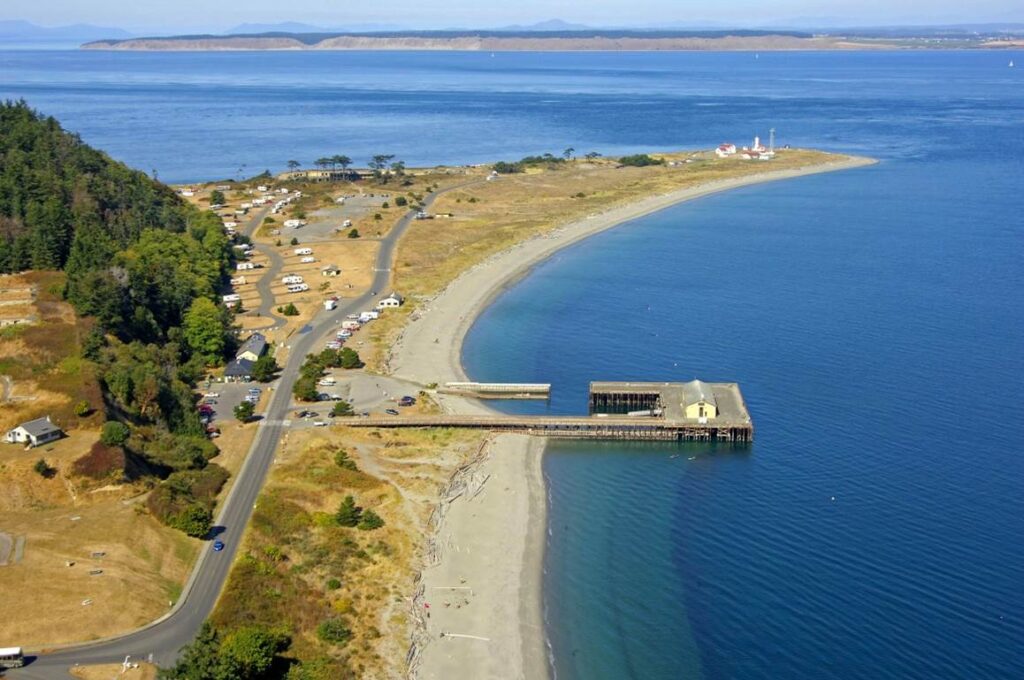
Collaboration within a nonprofit network
Beyond these projects, the PTMSC has embraced partnerships with other nonprofits as well. Boire talks about how they have been affected by the rural-urban divide: “People in rural areas are struggling as more people and resources go to urban areas.” In response, the PTMSC is connecting with small community aquariums throughout the Puget Sound and in Canada to form a collaborative. With this network, they are able to unite with a stronger voice, share in professional development and marketing, expand citizen science initiatives, and offer support to each other.
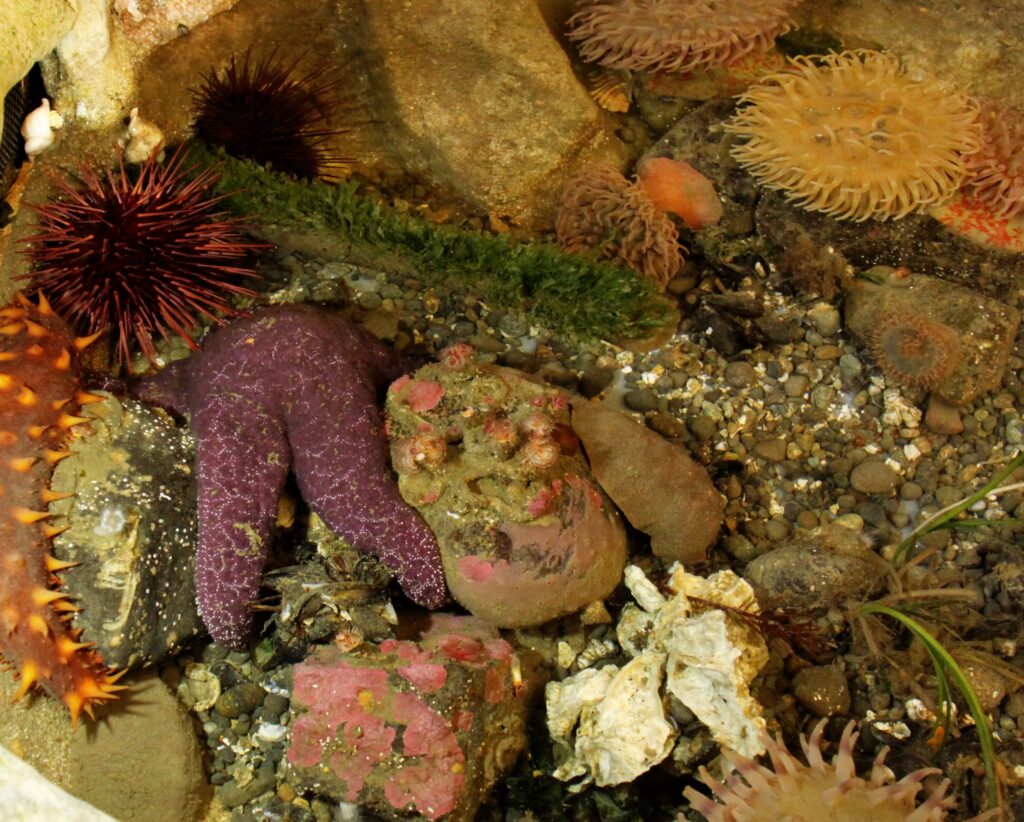
The Port Townsend Marine Science Center has been active in their community since 1982 and they have developed some great insights into a community engagement strategy:
- As a nonprofit in the science field, the PTMSC knows how important it is to be precise when reporting their work to the community. There must be a distinction between belief and evidence, and community organizations should be deliberate in their communications.
- Once “the truth is born out through the rigors or science” and there is solid evidence, then advocate for it. Standing up for your mission is an essential part of being a nonprofit.
- Education is central to their advocacy. The PTMSC’s museum hosts one of only six fully articulated orca whale skeletons on display in the US and tells a powerful story about working for healthier seas. Their aquarium has a touch pool where the public can interact with marine life. They also have school programs, lecture series, and summer camps, incorporating the work of their citizen science programs into ways for the public to learn and engage.
- When partnering with other nonprofits, the key is trust. Boire affirms that “it’s not easy, but it’s worth it.” They are grateful to have support from the Russell Family Foundation since the beginning of the collaborative, demonstrating that the community has confidence in their efforts.
The Port Townsend Marine Science Center welcomes visitors! Check out their website for current information on hours and directions. Interested in volunteering? They have new volunteer information sessions scheduled through the next six months! They are currently hosting a 2019/2020 lecture series about The Future of Oceans. Follow them on Facebook to keep in touch and see upcoming events and follow their Instagram for fantastic pictures and videos of marine and shoreline life.

The Port Townsend Marine Science Center was founded in 1982 by two teachers and was initially run entirely by volunteers. Over the years the science center has continued to grow in a steady, thoughtful manner, and its volunteers, now numbering more than 300, are still integrally involved in the organization. Throughout its development, PTMSC has remained committed to its mission of inspiring conservation of the Salish Sea. They have been a Washington Nonprofits member since 2016.